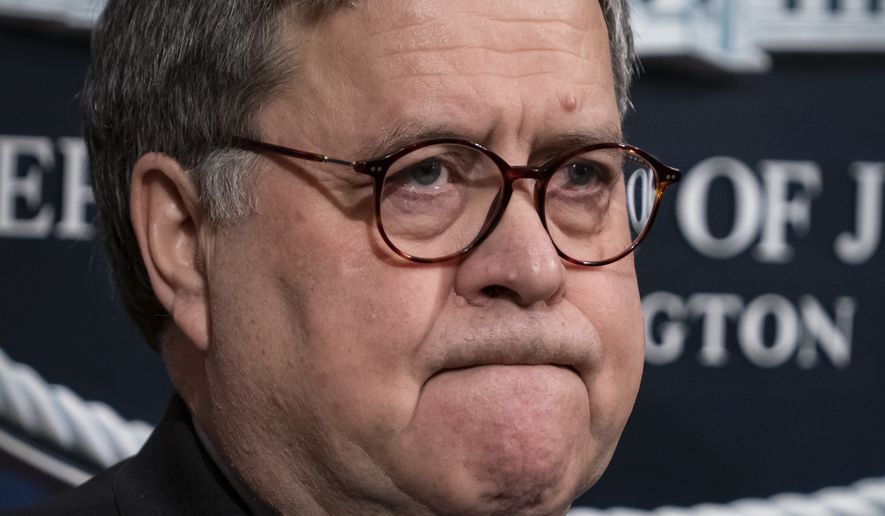A federal judge Thursday ordered the Justice Department to turn over former special counsel Robert Mueller’s full unredacted report, saying he doesn’t trust that Attorney General William P. Barr truthfully represented the report’s conclusions.
U.S. District Judge Reggie Walton said the Justice Department must submit the report to him because he saw discrepancies between Mr. Barr’s depiction of the special counsel’s report and the publicly released version.
Judge Walton, who was appointed by President George W. Bush, said he needed to do his own “independent verification.”
“The speed by which Attorney General Barr released to the public the summary of Special Counsel Mueller’s principal conclusions, coupled with the fact that Attorney General Barr failed to provide a thorough representation of the findings set forth in the Mueller Report, causes the Court to question whether Attorney General Barr’s intent was to create a one-sided narrative about the Mueller Report — a narrative that is clearly in some respects substantively at odds with the redacted version of the Mueller Report,” Judge Walton wrote.
“These circumstances generally, and Attorney General Barr’s lack of candor specifically, call into question Attorney General Barr’s credibility as well as the DOJ’s arguments in a Freedom of Information Act (FOIA) lawsuit,” he added.
Judge Walton went on to say the attorney general lacked candor when it came to the Mueller report, saying he made “misleading public statements about the findings in the Mueller report.”
The judge’s comments came in a lawsuit filed by BuzzFeed News and the Electronic Privacy Information Center, a nonprofit civil-liberties group seeking the full Mueller report.
Judge Walton’s stunning rebuke is a rare move from the courts, which traditionally shy away from ascribing political motivations to the nation’s top law enforcement official.
Last year, Mr. Mueller released his two-volume report into accusations both that the Trump campaign conspired with Russian efforts to interfere in the 2016 presidential election and that Mr. Trump obstructed that investigation as president.
Mr. Mueller could find no evidence that the president or any member of his campaign colluded with Russia and did not reach a conclusion on whether the president obstructed justice. Mr. Barr and Deputy Attorney General Rod Rosenstein decided that the president had not.
• Jeff Mordock can be reached at jmordock@washingtontimes.com.




Please read our comment policy before commenting.